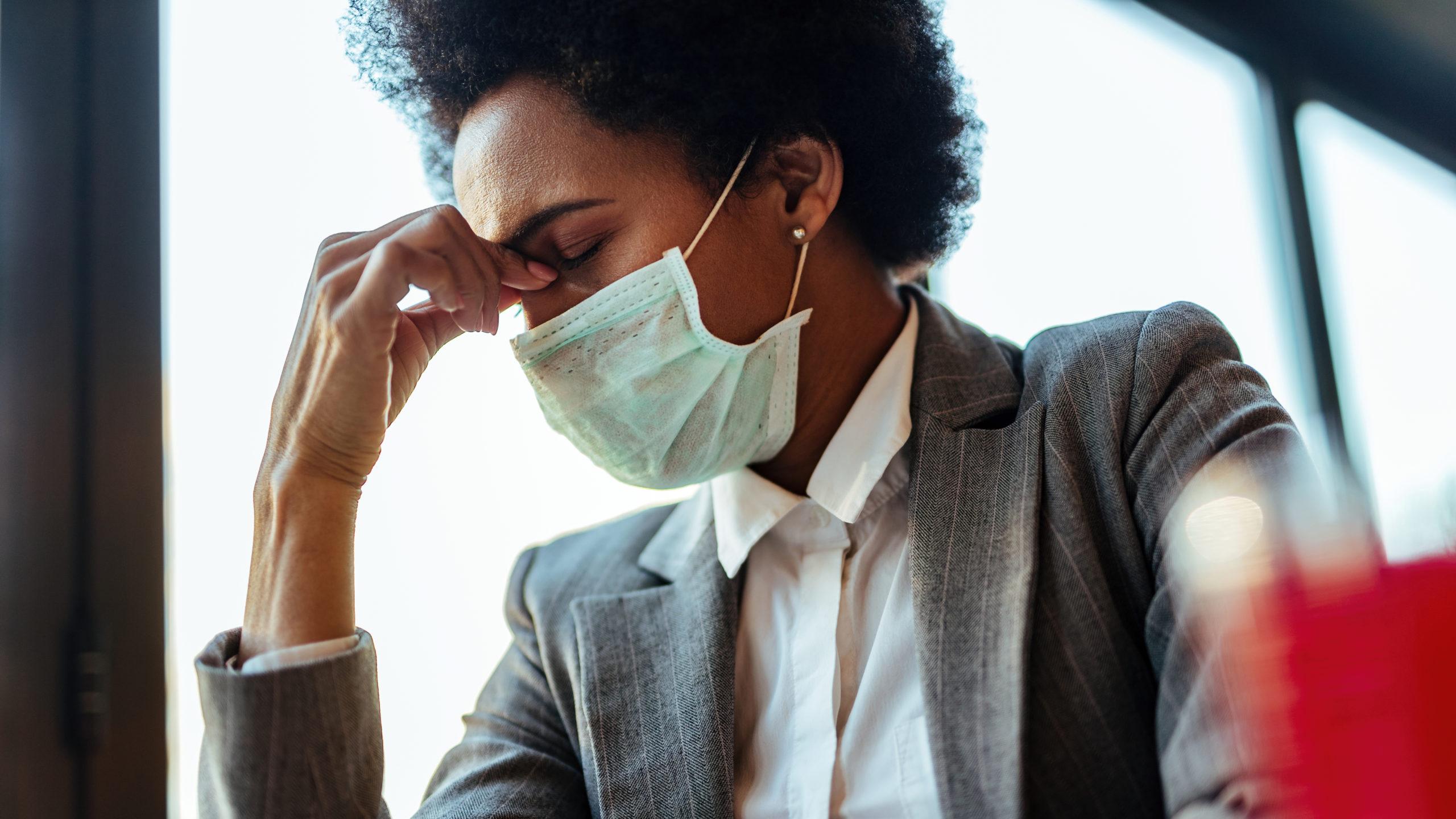Disclosure :: This post is sponsored by Our Lady of Lourdes Regional Medical Center and written by Jonathan K Jones, MD.
Headache & Migraine: The COVID-19 Connection
Headache has been recognized as a primary symptom of the novel coronavirus, but headaches and COVID may be related for more than one reason.
Is your headache a symptom of COVID-19? The answer is … maybe.

COVID-19 is thought to first affect the respiratory system, but doctors and scientists are learning more about how COVID-19 affects every system of the body. Providers across the nation have noted an uptick in the number of people reporting persistent, crushing, prolonged headaches severe enough to have them seek medical attention. While many of these patients suffered from headaches before the COVID pandemic, some are suffering these headaches for the first time. What also is concerning, many of these patients continue to suffer from these headaches long after the other symptoms of COVID-19 have subsided.
The Centers for Disease Control lists headache as a primary symptom of COVID-19, often appearing with other symptoms like fever and chills, cough, loss of taste or smell, sore throat, congestion and nausea. Some of these headaches can last a short time; however, some patients have reported headaches that last all day or all night, and some patients have reported that these headaches have continued to last longer than the other symptoms and sometimes started before the other symptoms presented.
People with a history of chronic migraines who contracted COVID-19 have noted migraines as an initial symptom of COVID-19 that appeared before other symptoms often associated with the virus, like fever and cough, appeared. The National Center for Biotechnology Information, US National Library of Medicine, indicates up to 34 percent of people hospitalized with COVID-19 listed headache as a primary symptom. A similar CDC report put the percentage closer to 21 percent.
Will over-the-counter remedies help if the headache or migraine is COVID-19-related? Some, like acetaminophen, aspirin or ibuprofen, may help the headache with the added benefit of helping reduce fever. However, it is not recommended that you give aspirin to a child with fever or flu-like symptoms because of risk of a side effect called Reye’s Syndrome, a rare but serious condition that causes swelling in the liver and brain. Pregnant women should never take anti-inflammatories because of risk of serious harm to the unborn baby.
You should carefully monitor your use of acetaminophen. You may need to consult your physician before taking it or giving it to a child, as acetaminophen can damage the liver at elevated dosages. The best course of action is to contact your Primary Care Provider for advice on appropriate medication or your Neurologist, if you are being followed by a Neurologist for your headaches.
That’s a lot to take in, especially if you suffer from chronic headaches or migraines. Still, if a headache or migraine develops, don’t rush out to take a COVID-19 test. Your headache may be COVID-19-related for a different reason. Providers also have noted an increase in people developing prolonged headaches and migraines because of the stress associated with the pandemic’s impact on all aspects of life.
First, pause and assess the entirety of the situation. Are you moving, stretching, hydrating and sleeping in appropriate amounts? Is there anything that could have triggered a headache or migraine? Have you noticed fever, loss of taste or smell, sore throat or any other symptoms? If the answer is yes, or if you are concerned you have COVID-19, here are some next steps:
- Report your symptoms to your primary care provider. They will advise you of how to care for yourself and may recommend locations for you to receive a COVID-19 test. Many physicians are now providing video visits so that you are able to speak to a doctor from the comfort of your home.
- Monitor your symptoms. If your symptoms become severe, head to the closest emergency department. Be sure to let them know if you have tested positive for COVID-19 or have COVID-19 symptoms when you arrive.
- There are many treatments available for the headaches, including migraines, that have started or worsened due to the stress of the coronavirus pandemic. Surprisingly, many of the patients with headaches, including migraines, that started as a symptom of COVID-19 also require headache treatment for relief of their headaches. Talk to your Primary Care Physician or Neurologist about headache treatments that are available.
 — Dr. Jonathan Jones is a Neurologist with Our Lady of Lourdes Regional Medical Center. Learn more at LourdesRMC.com.
— Dr. Jonathan Jones is a Neurologist with Our Lady of Lourdes Regional Medical Center. Learn more at LourdesRMC.com.


















